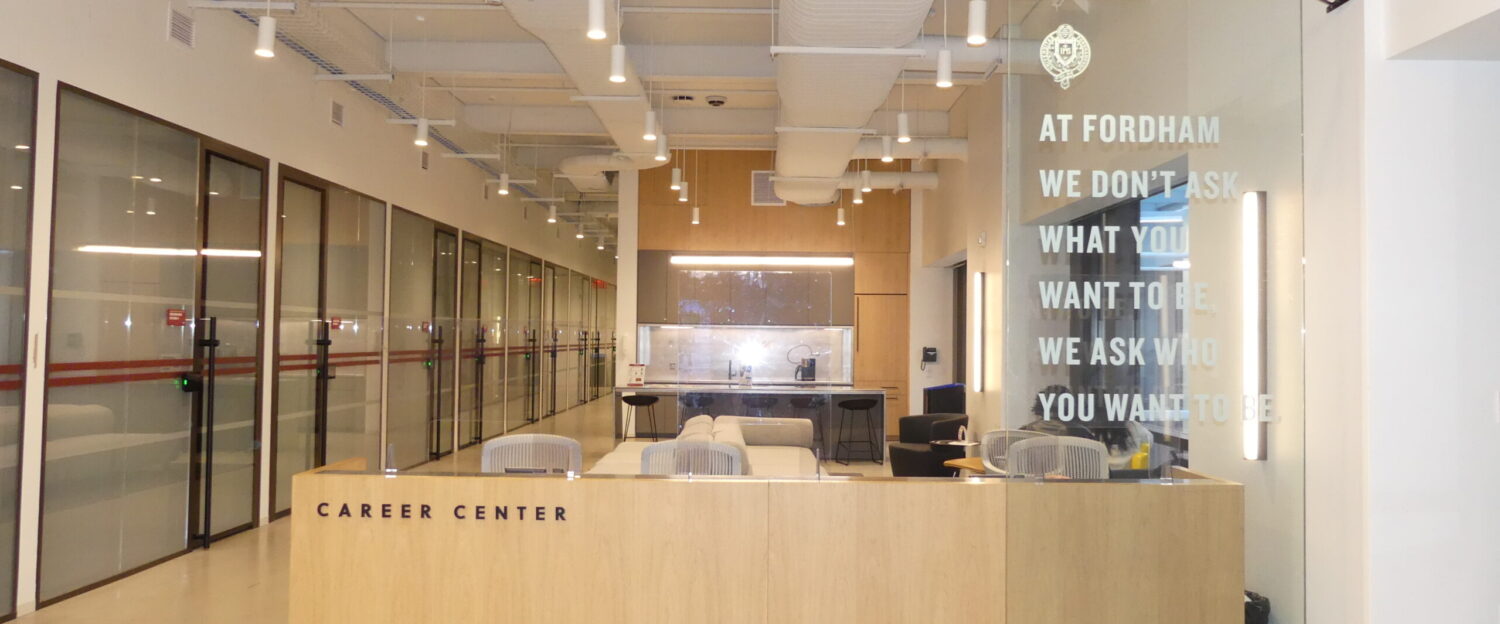Post contributed by Fordham Career Ambassador Ash Malek
Coffee chats, or informational interviews, are ten to thirty-minute conversations with employer representatives, hosted by the Career Center. Students can also independently reach out to professionals in their field of interest to meet in person or virtually. In both cases, the core purpose of these conversations remains the same: You assess mutual fit, develop an understanding of how hiring works in practice, and secure follow-up permission. They are not interviews but influence interviews; if done correctly, they convert curiosity into warm leads and articulated next steps.
Different Nuances
Individuals who want to connect with company employees who are not coming on campus must start early. In this given context, the onset of coffee chats generally begins 6-10 weeks before applications open. RamConnect is a good starting point for students here at Fordham to connect with alums who work at the companies you are interested in. In cases where you cannot find any alumni on RamConnect, LinkedIn is a strong alternative. For better responses, start with slightly junior employees and then ask for referrals to more senior employees.
The second type of coffee chats is where universities will host one-on-one, roughly 30-minute coffee chats or a larger seminar-style information sessions. If you’re looking to register for on-campus coffee chats, you can search “coffee chat” under the “jobs” page on Handshake. Be sure to complete your on-campus recruiting program onboarding before applying!
Treat every interaction as on record; employers will jot down names and impressions, forming interview lists later. On campus, treat sign-up times as an interview: arrive early, dress slightly more formally than the group, and have a printed résumé if requested. In the seminar, be respectful and positioned close to the front, and have well-researched, thoughtful questions ready for the Q&A.
Preparing for the Espresso
Preparation makes the forgettable one a memorable one. This triangle may include creating a story to tell in two sentences or less— unique to you, your experience, and why following this career— and summarize with a “spike,” making the case of a particular project, analysis, or leadership victory.
For each organization, research one recent development. If it is a one-on-one meeting, RSVP in advance, look at the attendee’s page, and plan an outline that gives time to your story, some questions for this person, connect to them, prioritize their needs, and next steps. If it is a seminar-type meeting, arrive early, ask one specific question, then introduce yourself, and ask for a follow-up call.
Follow up within the next 24 hours post the coffee chat via email, thanking them for their time and how their insights helped you to decipher the industry better. After the first follow-up email, you should follow up every couple of weeks for the first month post the coffee chat, and then circle back with an update that indicates you are making progress every couple of months.
Types of Questions
Your questions are your currency. Good questions help you become memorable to your audience and help to start new conversations. Create a question deck focusing on experience and viewpoint: “What did your steepest learning curve look like in the first ninety days, and what was it that shortened it?”
Make questions role-specific to showcase the range of inquiry. In consulting, tap into measurement: “On your last operations case, which metric signified progress after thirty days, and how did the client sustain it?” In product, poke at decision making: “Where does the roadmap hinge on cross-team dependencies, and what is the indicator of a feature for its first sprint?” In corporate finance, probe at variance-control: “When forecasts miss, what is the recurring root cause, and how do you course correct in the quarter?”. Afterwards, complete a tight loop. Within twenty-four hours, follow up with a thank-you, identify one takeaway, and explain how you will execute it. Two weeks later, show a commitment you acted—a couple of short notes or minor deliverables—and make your real ask about exactly what role and location you discussed.
Done methodically, coffee conversations are not small talk. They are structured trades capturing research as signal, signal to trust, and trust to opportunity—on campus and off—and high-signal questions are the log that enables the wheel to get moving.

